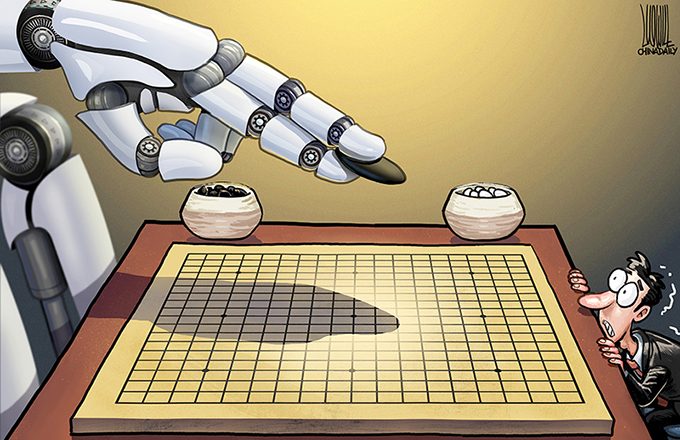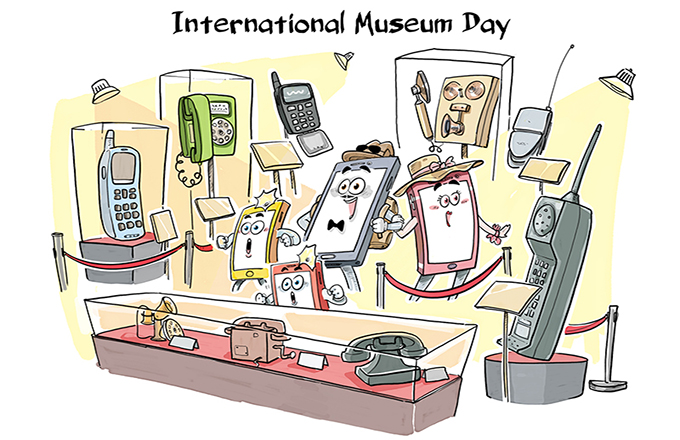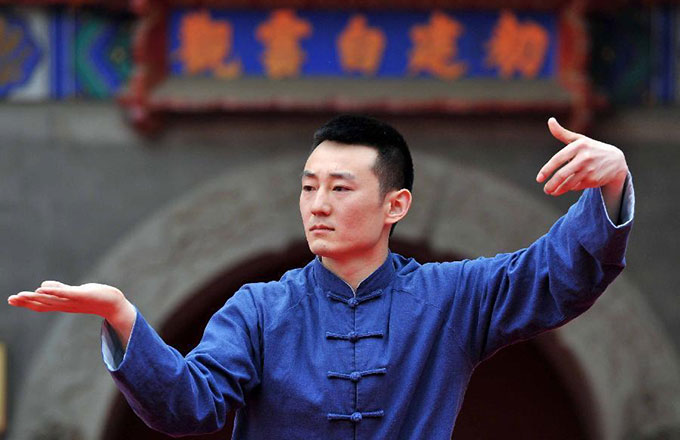Japan welcome to join AIIB and initiative
Toshihiro Nikai, the secretary-general of Japan's ruling Liberal Democratic Party, met with President Xi Jinping on Tuesday, raising hopes of Tokyo joining the China-proposed Asian Infrastructure Investment Bank.
Nikai also attended the Belt and Road Forum for International Cooperation in Beijing, which concluded on Monday, and was quoted as saying: "The key would be how quickly Japan can decide to participate" in the AIIB. Even Japanese Prime Minister Shinzo Abe said on Monday that joining the AIIB could be an option, if questions over the environmental impact of the projects funded by the bank and other issues were resolved.
Tokyo's change of attitude toward the AIIB, to some extent, is a result of the improving China-US relations. The four months of US President Donald Trump's tenure have seen fruitful interactions between the world's largest and second-largest economies, including a meeting and several phone calls between the two heads of state. That has not only strengthened the personal rapport between Xi and Trump, but also set the tone for cooperation on pressing issues such as the Korean Peninsula nuclear issue.
By sitting on the sidelines while China and the United States get closer, Japan could risk being marginalized in the geopolitical arena. So it would make perfect sense if Japan decides to join the AIIB and the Belt and Road Initiative.
In the past few years the Abe administration has increased trade and security exchanges with Southeast Asian and African countries, in an attempt to seek better relations with them and compete with China. The investments and financial aid provided to those less-developed economies, however, have imposed a heavy burden on Tokyo, especially because many of the investments will take a long time to bear fruits.
The costly diplomacy has also raised questions about the real purpose of Japan competing with China in Africa and other regions, and the consistency of Japan's foreign policy. Abe has to decide whether his government can afford to prolong such ill-considered policies to contain China, especially when China has refrained from putting at risk bilateral ties.
Many might argue that China's increased spending on defense could be putting Beijing-Tokyo ties at risk. But the fact is, Beijing has to raise its defense budget to better safeguard its core interests. The modernization of China's military is in line with its role as a major regional power, and does not target Japan or any other country.
Confrontations and conflicts have done no country any good. Reflecting this truth is the AIIB, for it already counts 77 countries and regions as its members, 10 more than the decades-old Asian Development Bank, which is mainly backed by Japan and the US. Hopefully, the US and Japan will also realize the futility of confrontations and join the AIIB under proper arrangements.
It is estimated that Asia needs infrastructure investment of $1.7 trillion per year through 2030. And by participating in the AIIB projects, Japan will be able to not only use most of its idle capital but also help Japanese investors to make decent profits.
China, as Xi said on Monday, welcomes Japan to take part in dialogues on cooperation within the framework of the Belt and Road Initiative. If Tokyo responds positively to Beijing's goodwill gesture, bigger deals, such as the trilateral free trade agreement between China, the Republic of Korea and Japan, could be within easy reach.
The author is a professor of Japan studies at China Foreign Affairs University.
(China Daily 05/20/2017 page5)



















